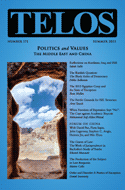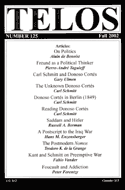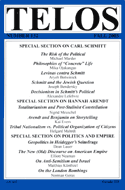By Peshraw Mohammed · Tuesday, December 3, 2024 Hamid Dabashi’s critique—or more accurately, his attack—on Hegel in the article “War on Gaza: How Hegel’s Racist Philosophy Informs European Zionism” represents an emerging trend in certain intellectual circles: dismissing European philosophy as fundamentally racist while advancing exclusionary regional ideologies, often excluding nations like Kurds and Jews by denying their identities and national aspirations. While Dabashi ostensibly raises valid concerns about colonialism and Eurocentrism, his interpretation—or more accurately, his misinterpretation—of Hegel is selective, reductive, and deeply entangled with a postcolonial hostility to the radical Enlightenment tradition embodied by thinkers such as Spinoza, Kant, and Hegel.
Drawing on the more nuanced readings of scholars like Susan Buck-Morss (who is misrepresented by Dabashi in the same article), Shlomo Avineri, and Domenico Losurdo, this response argues that Dabashi distorts Hegel’s philosophy and, in doing so, perpetuates the ideological prejudices embodied by pan-Iranism, pan-Arabism, pan-Turkism, and Islamism. Furthermore, I will explore why Hegel’s thought, as a philosophy of emancipation, holds critical significance for the self-determination of historically oppressed nations, particularly the Jews and Kurds. I begin by discussing how Dabashi misrepresents Hegel’s philosophy to advance his own chauvinistic and antisemitic agenda, while also indirectly exposing his fear toward Hegel as a thinker whose ideas could support both Kurds and Jews in their pursuit of statehood and nationality. Dabashi, an Iranian-American professor of Iranian Studies and Comparative Literature at Columbia University, frequently writes about topics such as Palestine, Israel, Kurdistan, and Iran, consistently intertwining them with Iranian nationalist chauvinism, antisemitism, and antikurdism, all disguised under the facade of progressive leftist ideas—a facade that must be unmasked.
Continue reading →
By Sabah Salih · Wednesday, July 15, 2015
 The recent dramatic rise of Kurdistan as a major power player in the Middle East could not have happened without America’s 2003 regime change in Iraq. The change also resulted in a dramatic rise in the standard of living and in the way people live their lives and think about themselves and their world. Contrary to the common view in the West, the intervention did not break up a unified Iraq; it rather sped up the unraveling of colonialism’s post–World War I handiwork, which stupidly imposed the tyranny of a minority on the majority. Saddam Hussein laid the groundwork for ISIS’s emergence with his creation of Saddam’s Fidayeen paramilitary force following the first Gulf War. The recent dramatic rise of Kurdistan as a major power player in the Middle East could not have happened without America’s 2003 regime change in Iraq. The change also resulted in a dramatic rise in the standard of living and in the way people live their lives and think about themselves and their world. Contrary to the common view in the West, the intervention did not break up a unified Iraq; it rather sped up the unraveling of colonialism’s post–World War I handiwork, which stupidly imposed the tyranny of a minority on the majority. Saddam Hussein laid the groundwork for ISIS’s emergence with his creation of Saddam’s Fidayeen paramilitary force following the first Gulf War.
Continue reading →
By Johannes Grow · Tuesday, November 19, 2013 As an occasional feature on TELOSscope, we highlight a past Telos article whose critical insights continue to illuminate our thinking and challenge our assumptions. Today, Johannes Grow looks at Russell A. Berman’s “Saddam and Hitler: Rethinking Totalitarianism” from Telos 125 (Fall 2002).
 In “Saddam and Hitler: Rethinking Totalitarianism,” Russell A. Berman examines the limits of current efforts to understand totalitarianism in light of the juxtaposition of Nazi Germany and Baathist Iraq. He questions the “cultural approaches” often implemented when approaching the study of the Nazi years. Berman doubts whether the German people, under the increasingly violent and fanatical Nazi regime, were truly a Volksgemeinschaft, a happy population believing in every word of the leader, be it true or false, or as the Baathist regime in Iraq demonstrated, a regime of violence, with the party and the leader as the center node propagating terror throughout the state. The author examines three problems present in contemporary discussions of the Nazi regime that may be further elucidated through a juxtaposition of Hitler’s “movement” with the old Saddam regime. The first involves the futility of defining these regimes as either “Left” or “Right.” These types of distinctions do not allow for a full exploration of the effects of these regimes. The second problem is the aligning of Nazism with a sort of “cultural hegemony” rather than with an environment of coercion, violence, and politics. The third concern involves limiting the question of totalitarianism to a certain period history rather than examining its effects on the present. In “Saddam and Hitler: Rethinking Totalitarianism,” Russell A. Berman examines the limits of current efforts to understand totalitarianism in light of the juxtaposition of Nazi Germany and Baathist Iraq. He questions the “cultural approaches” often implemented when approaching the study of the Nazi years. Berman doubts whether the German people, under the increasingly violent and fanatical Nazi regime, were truly a Volksgemeinschaft, a happy population believing in every word of the leader, be it true or false, or as the Baathist regime in Iraq demonstrated, a regime of violence, with the party and the leader as the center node propagating terror throughout the state. The author examines three problems present in contemporary discussions of the Nazi regime that may be further elucidated through a juxtaposition of Hitler’s “movement” with the old Saddam regime. The first involves the futility of defining these regimes as either “Left” or “Right.” These types of distinctions do not allow for a full exploration of the effects of these regimes. The second problem is the aligning of Nazism with a sort of “cultural hegemony” rather than with an environment of coercion, violence, and politics. The third concern involves limiting the question of totalitarianism to a certain period history rather than examining its effects on the present.
Continue reading →
By Frederick Wertz · Tuesday, December 11, 2012 As an occasional feature on TELOSscope, we highlight a past Telos article whose critical insights continue to illuminate our thinking and challenge our assumptions. Today, Frederick Wertz looks at Elliot Neaman’s “The New (Old) Discourse on the American Empire and the War in Iraq” from Telos 132 (Fall 2005).
 Critiques of American imperialism are easy to find at the domestic and the international level, especially in today’s partisan and reactionary political climate. The contemporary discourse is beginning to focus on the decline of the American empire, despite the fact that there is very little consensus as to whether or not America ever even had an empire to begin with, in any objective historical context. Critiques of American imperialism are easy to find at the domestic and the international level, especially in today’s partisan and reactionary political climate. The contemporary discourse is beginning to focus on the decline of the American empire, despite the fact that there is very little consensus as to whether or not America ever even had an empire to begin with, in any objective historical context.
In an article written in the midst of a heated debate about American imperialism and the War in Iraq, Elliot Neaman takes a step back from the fray and takes a look at the development of the contemporary discourse surrounding the issue. While the debate may or may not have evolved significantly from where it was in 2005, Neaman’s analysis of various critiques of American empire has enduring aspects that pertain far beyond the scope of American foreign policy. By looking at various pro- and anti-empire positions from both the Left and Right, we can draw meaningful lessons about the development of discourse and the interpretation of history.
Continue reading →
|
|
 The recent dramatic rise of Kurdistan as a major power player in the Middle East could not have happened without America’s 2003 regime change in Iraq. The change also resulted in a dramatic rise in the standard of living and in the way people live their lives and think about themselves and their world. Contrary to the common view in the West, the intervention did not break up a unified Iraq; it rather sped up the unraveling of colonialism’s post–World War I handiwork, which stupidly imposed the tyranny of a minority on the majority. Saddam Hussein laid the groundwork for ISIS’s emergence with his creation of Saddam’s Fidayeen paramilitary force following the first Gulf War.
The recent dramatic rise of Kurdistan as a major power player in the Middle East could not have happened without America’s 2003 regime change in Iraq. The change also resulted in a dramatic rise in the standard of living and in the way people live their lives and think about themselves and their world. Contrary to the common view in the West, the intervention did not break up a unified Iraq; it rather sped up the unraveling of colonialism’s post–World War I handiwork, which stupidly imposed the tyranny of a minority on the majority. Saddam Hussein laid the groundwork for ISIS’s emergence with his creation of Saddam’s Fidayeen paramilitary force following the first Gulf War.  In “Saddam and Hitler: Rethinking Totalitarianism,” Russell A. Berman examines the limits of current efforts to understand totalitarianism in light of the juxtaposition of Nazi Germany and Baathist Iraq. He questions the “cultural approaches” often implemented when approaching the study of the Nazi years. Berman doubts whether the German people, under the increasingly violent and fanatical Nazi regime, were truly a Volksgemeinschaft, a happy population believing in every word of the leader, be it true or false, or as the Baathist regime in Iraq demonstrated, a regime of violence, with the party and the leader as the center node propagating terror throughout the state. The author examines three problems present in contemporary discussions of the Nazi regime that may be further elucidated through a juxtaposition of Hitler’s “movement” with the old Saddam regime. The first involves the futility of defining these regimes as either “Left” or “Right.” These types of distinctions do not allow for a full exploration of the effects of these regimes. The second problem is the aligning of Nazism with a sort of “cultural hegemony” rather than with an environment of coercion, violence, and politics. The third concern involves limiting the question of totalitarianism to a certain period history rather than examining its effects on the present.
In “Saddam and Hitler: Rethinking Totalitarianism,” Russell A. Berman examines the limits of current efforts to understand totalitarianism in light of the juxtaposition of Nazi Germany and Baathist Iraq. He questions the “cultural approaches” often implemented when approaching the study of the Nazi years. Berman doubts whether the German people, under the increasingly violent and fanatical Nazi regime, were truly a Volksgemeinschaft, a happy population believing in every word of the leader, be it true or false, or as the Baathist regime in Iraq demonstrated, a regime of violence, with the party and the leader as the center node propagating terror throughout the state. The author examines three problems present in contemporary discussions of the Nazi regime that may be further elucidated through a juxtaposition of Hitler’s “movement” with the old Saddam regime. The first involves the futility of defining these regimes as either “Left” or “Right.” These types of distinctions do not allow for a full exploration of the effects of these regimes. The second problem is the aligning of Nazism with a sort of “cultural hegemony” rather than with an environment of coercion, violence, and politics. The third concern involves limiting the question of totalitarianism to a certain period history rather than examining its effects on the present.  Critiques of American imperialism are easy to find at the domestic and the international level, especially in today’s partisan and reactionary political climate. The contemporary discourse is beginning to focus on the decline of the American empire, despite the fact that there is very little consensus as to whether or not America ever even had an empire to begin with, in any objective historical context.
Critiques of American imperialism are easy to find at the domestic and the international level, especially in today’s partisan and reactionary political climate. The contemporary discourse is beginning to focus on the decline of the American empire, despite the fact that there is very little consensus as to whether or not America ever even had an empire to begin with, in any objective historical context. 

